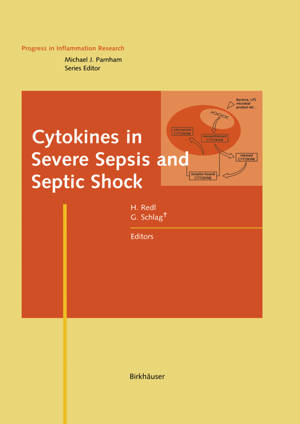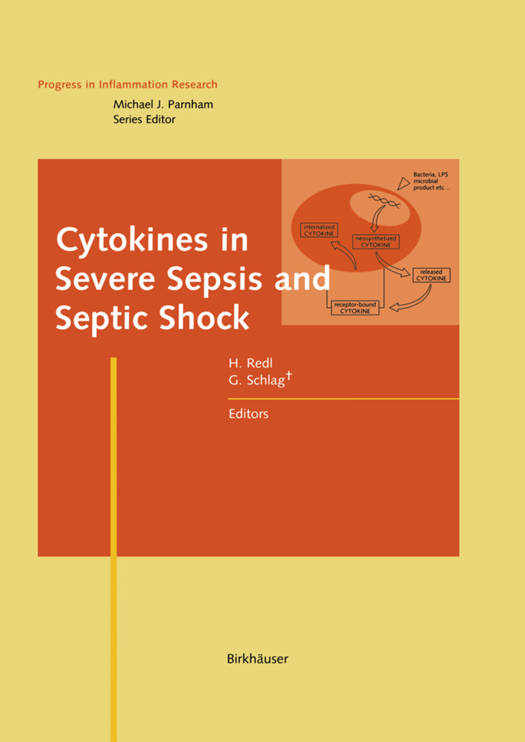
- Afhalen na 1 uur in een winkel met voorraad
- Gratis thuislevering in België vanaf € 30
- Ruim aanbod met 7 miljoen producten
- Afhalen na 1 uur in een winkel met voorraad
- Gratis thuislevering in België vanaf € 30
- Ruim aanbod met 7 miljoen producten
Zoeken
Cytokines in Severe Sepsis and Septic Shock
€ 210,95
+ 421 punten
Omschrijving
t Heinz Red! and Gunther Sch!ag Ludwig Boltzmann Institute for Experimental and Clinical Traumatology, Vienna, Austria The word "sepsis" derives from the Greek meaning decay or rottenness. Tradition- ally this term has been used to describe the process of infection accompanied by the host's systemic inflammatory response. Based on that understanding, previous clin- ical studies have been designed to include only patients with positive blood cultures [1, 2]. However, the frequent occurrence of a septic response without the demon- stration of microorganisms in the circulation has led to a new definition and under- standing of sepsis, mainly as the systemic response of the host to an often unde- tectable microbiological or non-microbiological process [3]. The general consensus is that cytokines are central to the inflammatory response, particularly in sepsis. It is now known that not only Gram-negative but also Gram- positive, viral, and fungal infections initiate the complex cascades of cytokine release. Probably the most important aspect of bacterial action is the release of toxic bacterial products. In particular endotoxin from Gram-negative bacteria (see chap- ter by Schade) and super antigens (see chapter by Neumann and Holzmann), as well as pore-forming toxins [4] from Gram-positive bacteria, induce cytokine formation. The importance of this cytokine release is evident from both diagnostic and thera- peutic (mostly experimental) studies, and the action of cytokines may be the key to our understanding of the pathophysiology of the sepsis syndrome.
Specificaties
Betrokkenen
- Uitgeverij:
Inhoud
- Aantal bladzijden:
- 372
- Taal:
- Engels
- Reeks:
Eigenschappen
- Productcode (EAN):
- 9783034897594
- Verschijningsdatum:
- 8/10/2012
- Uitvoering:
- Paperback
- Formaat:
- Trade paperback (VS)
- Afmetingen:
- 170 mm x 244 mm
- Gewicht:
- 625 g

Alleen bij Standaard Boekhandel
+ 421 punten op je klantenkaart van Standaard Boekhandel
Beoordelingen
We publiceren alleen reviews die voldoen aan de voorwaarden voor reviews. Bekijk onze voorwaarden voor reviews.










